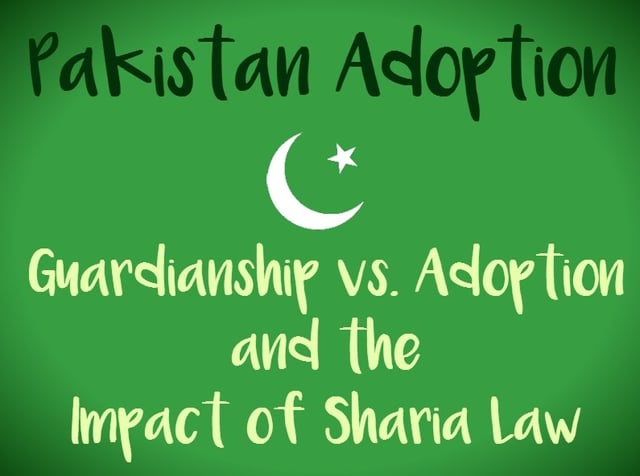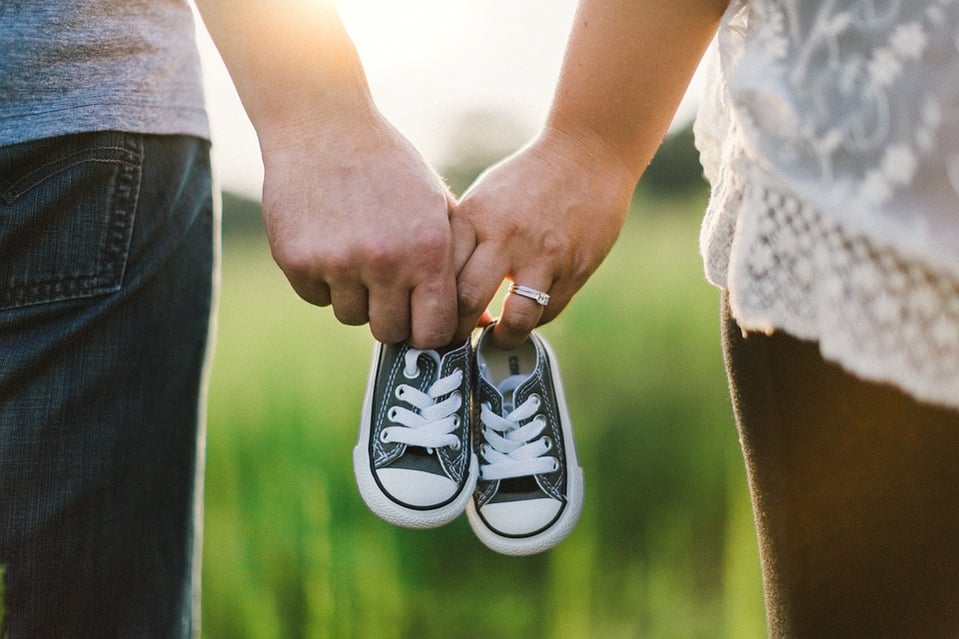As in many Muslim majority countries, the Pakistan legal system incorporates elements of Sharia law (the moral code and religious law of Islam). In Islamic law, the word adoption as it is legally defined in the United States does not exist. Instead, the law defines many different types of guardianship of non-relative or relative children. A couple who is adopting from Pakistan must obtain guardianship of the child in the Pakistan family court system for the purposes of adoption & immigration to the United States. Culturally and legally there is a difference between Pakistan guardianship and United States adoption as decided by the United States immigration laws. Parents who obtain guardianship of a Pakistani child know in their hearts that the child is theirs and they love them deeply. However, the legal word “guardianship” in Pakistan does not culturally conform to the U.S. definition of “adoption.”

Due to this cultural difference, the laws of Pakistan and of the U.S. do not match up perfectly, and the U.S. legal system does not recognize a guardianship as a full and final adoption. When a child is placed in a family through adoption in the United States, they are automaticaly given the legal rights that a biological child would have. When a child is placed in a family through guardianship in Pakistan, they are not automatically given all of those rights even though the family will love and parent the child just the same as a biological child. For example, if the parent of a child under guardianship in Pakistan passes away and does not include that child in their will, the child will not have automatic inheritance rights. The surviving biological family members can legally give the child nothing from their parent’s estate. When a child is adopted in the U.S., they are automatically given inheritance rights identical to biological children.
Another way Sharia law influences adoption in Pakistan is that orphanages will only place Muslim children with Muslim families and Christian children with Christian families. Unless the child is found with documentation that they are a Christian child, they are assumed to be Muslim. As a result, a Pakistani Christian couple will most likely have to wait longer for child that a Muslim couple since Christians are a minority.
When adopting from Pakistan, the adoptive parents must obtain guardianship for the purposes of immigration of the child they are matched with through the Pakistan Family Court system. The decree of guardianship from the Court (along with your approved I-600 and other suppoting documents required by the US Embassy) will allow you to obtain an IR-4 visa for the child to come back to the United States.
Once back in the United States, you are required to go through the legal process of adopting your child through the courts in your state of residence in order for the child to have legal status. Although you do have legal guardianship of the child, you do not have a full and final adoption. Eventually, your child’s visa will expire and they will NOT be a legal citizen if you do not finalize the adoption in the U.S. When you adopt your child in the United States the child will automatically become a citizen of the United States. You will however have to apply for the certificate of citizenship. Although this is inconvenient, it is the reality of adopting a child from one country and residing in another because of the existence of cultural differences between the two countries. In the end, all the paperwork and court dates are worth it to have your beautiful child home with you, with no worries about their future.



Let Us Know What You Thought about this Post.
Put your Comment Below.